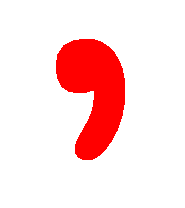I understand that the British approach to commas is, well, different. Those folks appear to be terrified of semicolons, as a result of which they go more than a little bit nuts with comma splices, creating sentences that in many cases don't just run on, they lurch and stagger about like a Universal Pictures mummy with a bad case of the jags.
It's worse than British norm with this book, making me seriously wonder about the editors who worked on it (the author's an academic and therefore past worrying about)*. We don't just have comma splices here; we have hordes of commas seemingly dropped in at random, apparently introducing parenthetical or subordinate clauses, only to run away giggling when we look for closure. In a text in which meaning is already difficult to discern because of the complexity of the subject, this punctuation madness is enough to cause sleeplessness in the reader.
The overwhelming impression I'm getting is of a population out of control. And last night, as I was drifting off to sleep, the following Public Service Announcement played in my head:
Ampersand Who's Who
[audio]
Cue: Theme music
[title]
The Comma
[announcer]
From the earliest days of written language, the comma has roamed the vast plains and woodlands of the English language. Once, this modest and unassuming animal served humankind well, providing the sort of break that makes written language approach the rhythm of speech and thus retain comprehensibility.
Of late, however, the comma population has exploded beyond the ability of humans to control it. Now hordes of commas compete with other, less-common forms of punctuation for sentence-space, resisting all efforts to reduce their numbers and increase readability.
It is believed that the explosion in the comma population is due to the near-extinction of the comma's only major predator, the colon. The colon and its near-relative, the semi-colon (excreted when a colon kills and eats a comma) are being starved out by the refusal of modern writers to use them, and of writers and editors to even try to understand their place in the ecology of written English.
To learn more, or to help restore the balance of nature, please contact your local department of English studies.
*Either the author or the editor—or, most likely, everybody involved in the book—seems to have been under the impression that the US journalist Nellie Blye was a male person. The mind reels.
*Either the author or the editor—or, most likely, everybody involved in the book—seems to have been under the impression that the US journalist Nellie Blye was a male person. The mind reels.


1 comment:
I haven't noticed a general lack of colons and semicolons - perhaps I haven't been reading enough contemporary stuff. I certainly use both when I'm writing. I also use a lot of dashes - by the end of this sentence I will have used three in this comment - and I'd be interested to hear your take on the matter. I'd also like to know if you capitalize the first letter after a colon. To me, caps-after-colons are the written equivalent to unintended throat-clearing.
Post a Comment